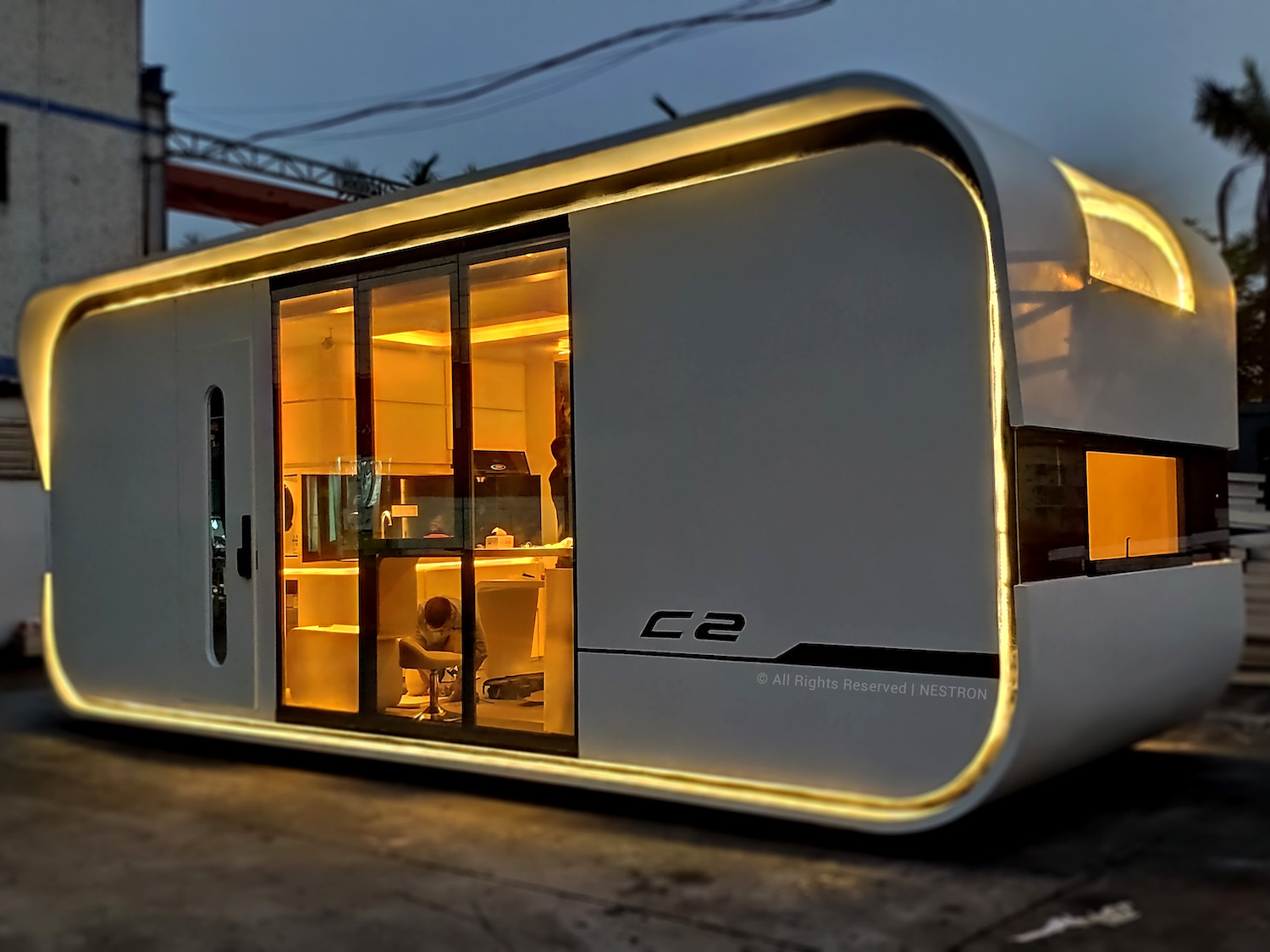- Tiny homes have become hugely popular in the last few years.
- The tiny home category encompasses a variety of dwellings, from pared down sheds to high-end custom homes.
- When buying a tiny home, buyers have to make all kinds of decisions about types, sizes, finishes, and more.
- Visit Business Insider’s homepage for more stories.
Tiny homes are a popular option with minimalists, aspiring homeowners who can’t afford a giant house, and people who want a home on wheels. They’ve even inspired multiple HGTV shows. When choosing a tiny home, the options can be overwhelming. Here are a few of the questions potential tiny homeowners should ask.
What kind of tiny home are you looking for?
Tiny homes come in about as many configurations as regular-sized homes, but before picking an architectural style, there are more basic decisions to be made. Tiny houses come in two broad categories: tiny homes on wheels, which are legally considered RVs, and tiny homes without wheels, or accessory dwelling units (ADUs), according to Curbed.
Deciding on which type of tiny home to buy depends on a few factors. For someone drawn to tiny homes for their mobility and travel potential, a home on wheels, registered as an RV, is the way to go. It’s also important to consider where the tiny home will reside. RVs will probably be restricted to RV parks and campgrounds, or on privately owned property, but zoning requirements will ultimately determine this. Finding somewhere to build an ADU can be a bit more complicated, again depending on local zoning laws. Some locales are working to make the permitting process faster and easier, like the preapproved Abodu ADU in San Jose, where paperwork can be turned around in just one day.

Who sells them?
You can buy just about anything on Amazon, including dozens of tiny homes delivered right to your door. The e-commerce site sells kits for houses buyers put together on their own, along with prefabricated tiny homes, some of which are made out of repurposed shipping containers or other unusual materials.


While Amazon has a wide variety of tiny homes, many are not currently available, or they don't seem to have any reviews that indicate they've actually been purchased. That's not a problem, though, as hundreds of companies have emerged to fill the craving for tiny homes. Business Insider has covered some of them. California studio Burdge Architects sell the buhaus customizable shipping container home, and Singapore-based Nestron sells a prefab smart home.

Hundreds of other companies sell tiny homes to whatever specifications a buyer could possibly want, from Tumbleweed Tiny House Company to Tiny Heirloom to Wind River Tiny Homes, just to name a few. You can even find tiny house plans on Etsy, with a few sellers listing an actual, constructed home.
Prefab tiny homes vs. kits
Whether you want a prefab tiny home ready to move into or you choose to buy and build a tiny home kit probably depends on why you want to live tiny in the first place. If you're attracted to tiny homes for convenience and minimalism, and money is less of a concern, a prefab option is the way to go, but for anyone going tiny to save on housing costs, a tiny home kit can definitely be cheaper.
Amazon has some of the most affordable DIY tiny home kits, starting at just over $5,000 for a 113-foot cabin. Be aware, though, that these kits typically come with only bare-bones features, and professional help will still be necessary to hook up electricity or other utilities.

Prefabricated tiny homes are typically more expensive, because all the construction is done and they're ready to move in. DIY homes are often made of wood and have very basic structures to make them simple to put together, while prefab homes can be more complex, and are often made of repurposed materials like shipping containers. In models like Nestron's Cube Two, that also means that furniture is built in as part of the design, and can make the most efficient possible use of space.

Cost
Prices, like tiny homes themselves, vary widely. DIY kits on Amazon are usually between five and ten thousand dollars, though other costs will come up for expert help, extra material, and furniture.
Prefab tiny homes are much more expensive, rivaling the price of full-sized homes in some areas. This house on Amazon, for example, costs $119,000, although shipping is free. Be wary of shipping costs, too. The Cube 2 from Nestron is $52,000, but shipping to the US is an additional $8,000. Expect to pay at least in this range for a prefab tiny home. The Abodu tiny home in San Jose is one of the most expensive at $199,000, but that includes a fully assembled unit, pre-approved and delivered in one of the most expensive housing markets in the country, by crane if necessary.
What features are included?
Like every other aspect of a tiny home, the included features can vary from an absolutely no-frills design to a completely decked out luxury. Homes on the cheaper end, particularly anything you have to put together yourself, comes with few frills - typically, you're paying for the floor plan and materials for the shell of the building, and anything else to make it comfortable is up to you.
With high-end, prefab tiny homes, they're usually move-in ready. The Cube 2 from Nestron has all furniture built-in, while the Abodu comes furnished and equipped for all utilities. These prefab units also include utilities, and the Cube 2 has an AI assistant built-in and connecting everything in the house.


